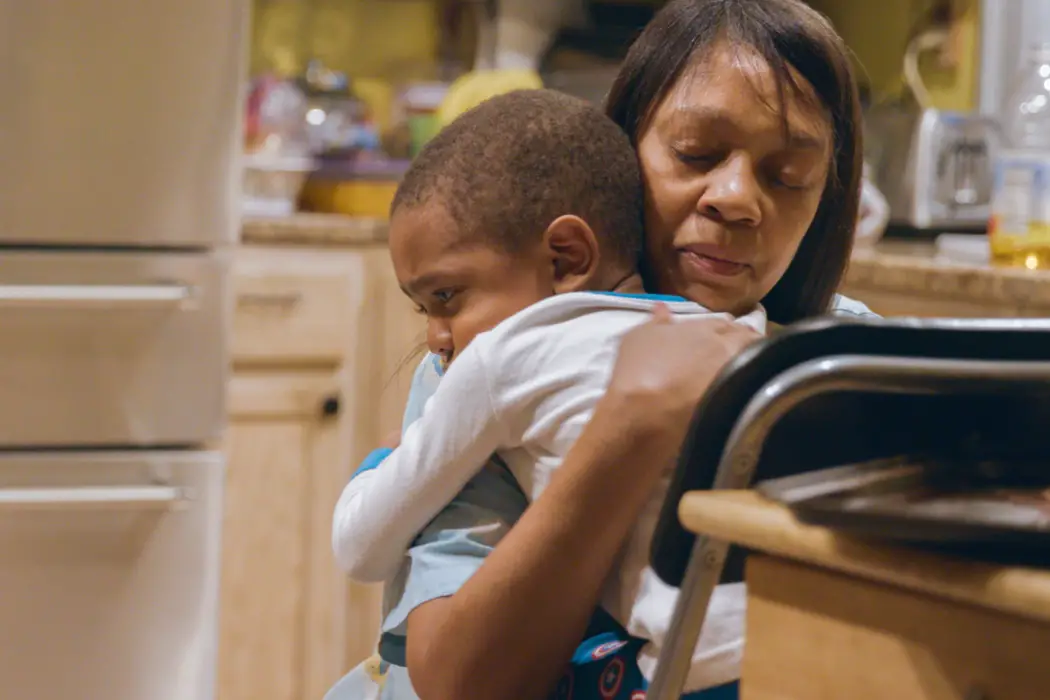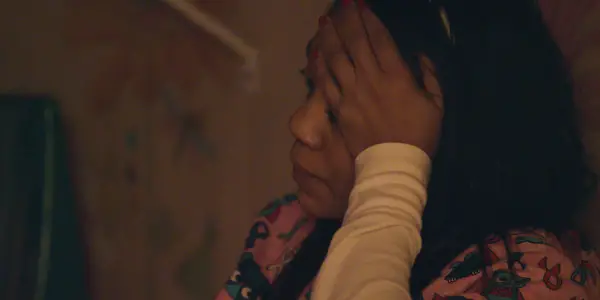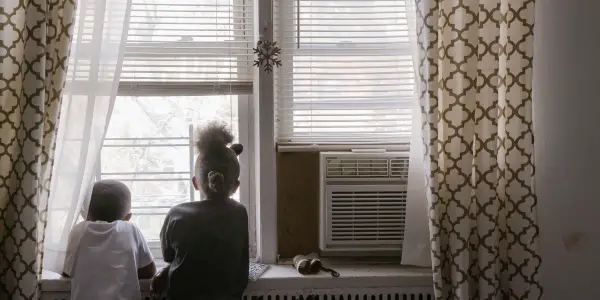Tribeca 2020: THROUGH THE NIGHT

Stephanie Archer is 39 year old film fanatic living in…
Starting a daycare was never the plan. Many of the humanitarian and life dedicating journeys aren’t. For Frankie (kindly referred to as Pop Pop) and Nunu, the 24-hour daycare in New Rochelle, NY was an accidental happening, something they started out doing for a friend in her time of need that has grown into its own self sustaining system.
There is a unique nature to director Loira Limbal’s documentary Through the Night, a quiet stillness. Even with the children running around on-screen, a peace that exudes. The documentary is not just about the daycare, but about a broken system that forces parents to choose between their children and their livelihood – and those waiting in the wings to catch them.
Genuine Care
From the moment Through the Night begins, there is a feeling of genuine care and concern. Not only from the subjects on-screen, but from the individuals behind the camera. Through the Night is a documentary that could easily have been edited down into a documentary short, but as a result, it would then have lost the connectivity and care that comes across so easily.

The camera lingers on interactions, children playing, and the environment it is immersed within. This time that is gracefully given does not rush viewers along, does no hasten the attention these issues desperately need. This is not just a caring facility for the kids, but for the parents as well. They know their children will be well cared for, and most importantly, loved – and the camera captures this with ease.
You feel as though you get to know Nunu and Pop Pop, feel the dedication of what has now become their life’s work. Their genuine care for these children, day in and day out, giving their home, their children’s lives and every ounce of themselves is masterfully captured. Teaching, stimulating, and encouraging, they are the stand-in parents for those who have to make their own sacrifices to provide for their children.
Strength is in the perspective
One of the biggest strengths of Through the Night is the chance it gives not only the parents, but the children to speak. Daycare has always had negative connotations, especially as women ventured out into the workforce. The concept of someone else raising your child carried a negative stigma, one that still refuses to release its grasp today. Yet, where assumptions of why parents would leave their children at a 24 hour child care facility can run wild, the parents making the sacrifice are given the chance to speak for themselves.

One parent works overnight at the emergency Pediatric department. 14 hours a day, she works to help save little lives, all while making the sacrifices of leaving her little lives in the care of Nunu. Having worked overnight, she talks about the struggles to manage sleep and spending time with her children, the amount of time for both minuscule. You can see the exhaustion in her eyes, the pain as she leaves her children and the relief when she sees their faces light up at the daycare.
Another mother works seven days a week to make ends meet – seven days a week and three jobs. Why three jobs? Because no one job will make her full time. 29 hours is the maximum hours allotted before the company has to provide healthcare – which sadly has become an inflating expense in recent years. Try as she might to obtain a full-time job, she either lacks the experience deemed for a higher income or there is nothing available. Her tears break your heart as she discusses leaving her children – and the unbearable cost of child care – especially now that her daughter is over 13 and no longer qualifies for state assistance.
But it’s in the words of the children we find the documentary comes full circle. One of the mothers is told by her job “your kids are not living a healthy life because someone else is raising them. They will grow up and hate you.” When the camera focuses on the children, you see the complete opposite. These children behave the same around their parents as they do in the daycare. This is not to say they don’t miss their parents, but there is a void that Nunu and Pop Pop temporarily fill. The children are not ignored and left to their own devices. One girl speaks of Nunu and Pop Pop as if they were apart of her family, her words and phrases shaping them as if they were her grandparents.

Watching Through the Night and hearing from the parents, children, Nunu and Pop Pop, you realize that in these desolate times for families, you are witnessing a modern version of the expression “it takes a village to raise a family.” And while we may have misplaced the sense of community and support, Through the Night proves it was never truly lost.
Through the Night: Conclusion
There is an ominous feel to the conclusion of Through the Night. While it ends on a happy and hopeful note, persistence and resilience dominating, there is a concern for the future. Nunu and Pop Pop cannot sustain, they are only human. The question becomes, what will happen when they are no longer able to provide these services to the community? While Nunu considers what will happen to the kids she can not take because her daycare is full, there is a bigger picture to consider.
With the world unchanging and services running out, what will the future look for these children when they grow up? What world are we raising them to enter into? Will they follow in the footsteps of their parents, grasping at the only opportunities life and the job market have to offer them?
While it is an ominous threat on the horizon, Nunu’s wish to make this a large scale service, to provide for families in a wider reach, is an idea that may one day find itself a foothold beyond the step of her front yard. One thing is for certain, the life’s work of Nunu and Pop Pop is far from over.
Find more information about Through The Night here.
Does content like this matter to you?
Become a Member and support film journalism. Unlock access to all of Film Inquiry`s great articles. Join a community of like-minded readers who are passionate about cinema - get access to our private members Network, give back to independent filmmakers, and more.













